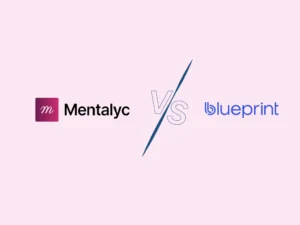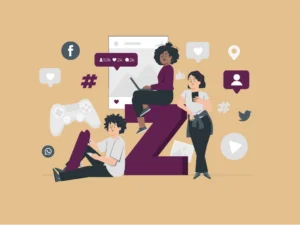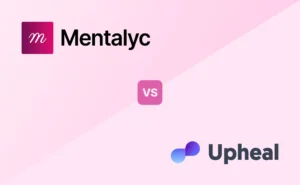As the young patient stepped out of the elevator into the clinic, you greeted her warmly, immediately recognizing her and welcoming her in while inquiring about her whereabouts. It was only two minutes in when the patient began to feel the unique client-therapist connection and ushered in an intimate talk where their deepest feelings and thoughts were securely recounted and exposed.
Being a compassionate therapist, it wasn’t that arduous to uncover your client’s struggle with her past, displaying visible signs of her struggle by squinting really hard and trying to remember traumatic events, followed by “I am not sure,” giving hopeless answers while shaking her head in obvious dismay. Feelings of shame and guilt washed over the patient for a brief second, but then she replaced them with faith, “I trust you; you are my safe and confidential place, and you will help me heal,” she affirmed, wearing the broadest smile.
The session came to an end; your patient left the visit allegedly satisfied, feeling genuinely supported and cared for. You spent the rest of the day restless thinking about your patient: What can you do to better help her? How can you optimize her counseling experience? With blurry eyes staring at the wall, you blanked out remembering other therapists’ recommendations: “The little secret lies in psychotherapy notes… take notes!”
What Are Psychotherapy Notes? The Secret Revealed!
Over the years, clinicians have debated the importance of psychotherapy notes and whether it is worth it to spend precious time getting such notes done. In this article, we highlight the importance of psychotherapy notes for your clients as well as for you as a therapist.

New! Transfer your notes to EHR with a single click. No more copy-pasting.
If we were to define psychotherapy notes in very few words, one could view them as a second set of notes (separate from progress notes) which are not available to anyone except the therapist. Psychotherapy notes are HIPAA defined as notes recorded by a mental health professional with the intent to simply document or even analyze the content of a conversation during a private, group, or family counseling session.
Distinguishably, psychotherapy notes are separated from the rest of the individual’s medical record and differ from progress notes in that they do not include a formal summary of the patient’s symptoms as related to his or her diagnosis, medications prescribed, treatments provided, results of clinical tests, and the patient’s progress with his condition to date.
Psychotherapy notes are:
- Produced by a mental health professional.
- A personal, private, in-depth record where your therapist logs their clinical impressions with the intent of getting a fuller picture of your situation.
- Separated from the rest of the client’s records.
- Exclude the formality of record-keeping that goes into standard progress notes.
- Contains sometimes very sensitive information that stands out to the therapist and that is not to be viewed by anyone outside the therapeutic relationship.
- Subject to a great degree of privacy and confidentiality under HIPAA laws and are not open to disclosure to anyone, even to the clients themselves.
To further elaborate, we can all relate to the fact that most people feel they cannot open up to friends, peers, or even family members about deep-rooted, private, and confidential matters for fear of being judged or dismissed. This is, however, not the case when it comes to counseling. Clients, most often, find themselves in a close therapeutic alliance governed by trust, respect, congruence, empathy, and genuineness where they can feel safe, open, and at ease in a non-judgmental atmosphere.
By virtue of this nature, your client is likely to share with you very sensitive details that are crucial to therapeutic decisions along the path to healing. Nevertheless, with hundreds of clients rushing in for your consultations, you are not likely to recall each and every session in detail. Are you? This is the reason why most therapists allude to psychotherapy notes.
Let’s Get Closer
Let’s get into the patient’s shoes: you are a client referring to a therapist for counseling. You sit there, and after a while, you feel safe enough to open up and start revealing your thoughts and feelings while the provider in front of you scribbles down private machinations that you’re not invited to see. You wonder: “What did I say wrong? Why am I not privy to such content? What is the content of such secret notes? “
Here is the answer: there are two types of therapist notes. One is the official client record that contains crucial information such as the date, length of the session, and the diagnoses that were addressed. We refer to such notes as “progress notes” that have already been tackled in-depth.
The other type features the therapist’s private thoughts about what is happening in this session. These are the notes tackling the provider’s private impressions, feelings, and thoughts about the problems you are dealing with and what needs to be done to best serve you, along with vital details to be pursued to ensure optimum client care.
If you were to remember one thing, it is the fact that such notes, by nature, contain sensitive information and, unlike other medical records, are subject to special protection under HIPAA regulations and are kept confidential, with your therapist being the only one to access them.
“Why does my therapist jot down such notes?” you might be pondering. Well, psychotherapy notes help your provider to solidify memories of important themes of the therapy process, crucial details to come back to, and noteworthy elements of where the session ended up and what needs to be done once kicking into the next session, instead of wasting time during the next encounter trying to remember the basics about your situation, thereby guiding therapy and making it more effective.
One last thing you need to know is that psychotherapy notes can take any format as long as they are kept private. Nevertheless, this is not to say that you can take them for granted. This is mainly because the reason you are writing notes in counseling as a therapist is to guide the counseling process and help you prepare for future sessions.
If you are to spend hours trying to decipher non-informative therapy notes later on, then you would be better off wasting time staring at the ceiling than writing ineffective therapy notes! This is the reason why most therapists allude to several well-known formats that can be used to make your professional life easier. Some of the most popular formats include:
BIRP Notes and
DAP Notes; each to be further tackled in separate articles.
Fortunately, we are here to make life easier! Whenever you feel overwhelmed by ambiguity, give us a shout!
Why other mental health professionals love Mentalyc

“By the end of the day, usually by the end of the session, I have my documentation done. I have a thorough, comprehensive note … It’s just saving me hours every week.”
CDCII

“A lot of my clients love the functionality where I can send them a summary of what we addressed during the session, and they find it very helpful and enlightening.”
Therapist

“It takes me less than 5 minutes to complete notes … it’s a huge time saver, a huge stress reliever.”
Licensed Marriage and Family Therapist

“It’s so quick and easy to do notes now … I used to stay late two hours to finish my notes. Now it’s a breeze.”
Licensed Professional Counselor






